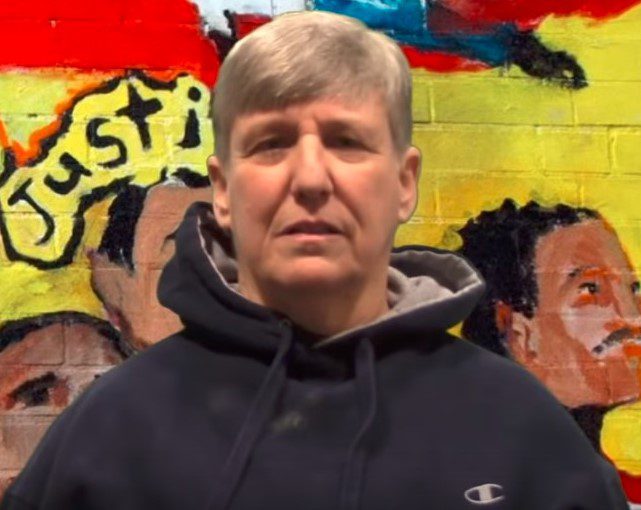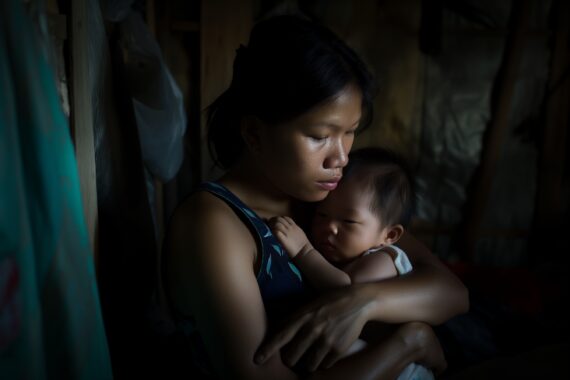There are many practices that mark the countdown to Christmas. From lighting the candles on an Advent wreath to opening the windows on Advent calendars, all serve to heighten a sense of anticipation. These actions keep the faithful attuned to the daily, re-inscribing the ongoing vigilance needed to persist in the ways of God’s reign. One such practice, with roots in Latin America, especially México, suggests a creative embellishment on the gospel of Luke’s claim: “there was no place for them in the inn” (Luke 2:7).
Las Posadas (literally the inns or lodgings) re-enact the journey of the Holy Family, made temporarily itinerant and homeless by an imperial decree that ordered Joseph and the pregnant Mary to document their existence at a most inconvenient time in their lives. Traditionally repeated over nine nights, from December 16 to December 24, these ritual processions wind through barrio streets. They perform the challenge of finding aid, generosity, and hospitality among strangers. At each house along the way, neighbors reject la Sagrada Familia until finally they are welcomed with a nightly fiesta at the last stop.
Adaptations of this practice reflect the contexts within which they are performed and the entities that sponsor them. Participants—families, neighbors, parishioners, students, activists—are the peregrinos, the pilgrims who accompany the Holy Family on their search. Sponsors include friends and neighbors, schools, congregations, cultural centers, and social justice organizations.
Today, what was a novena of nine consecutive days may be abbreviated into a single posada. Now, a local neighborhood event that would normally occur within walking distance may involve vehicles. The scope of the sponsorship may mean the final stop, with its celebration, takes place in a church hall or another venue more capacious than a home. The pandemic has also inspired adaptations – virtual posadas in cyberspace!
No matter the locale, this participatory experience situates incarnation in the heart of communities. Posadas remind participants that the Word still dwells among them in the hungry, the homeless, the migrant, the vulnerable, the stranger. This theology-in-motion confronts believers with a fundamental question: will the Word-made-flesh find a home here—in my family, in my home, in my school, in my neighborhood, in my nation, in my church? If so, what are our ongoing responsibilities to each other?
Through las posadas, the vulnerability of our human existence is on display and God-with-us enters as one-of-us. Posadas remind us that the Incarnate Word is born into a family dependent on the mercy of strangers, una familia in search of a safe haven and undoubtedly suffering the food insecurity experienced when one is uncertain where the next meal will come from, if at all. “En nombre del cielo, os pido posada, pues no puede andar, mi esposa amada.” This plea sung by Joseph, begging in the name of heaven because his beloved can go on no longer, is a cry repeated daily at borders, soup kitchens, shelters, and in the halls of power across the globe. The responses sung at each stop echo across time and place: Go away I don’t care! You threaten my security! Why do you bother me, isn’t this your own fault?
At the final stop, welcome precipitates fiesta. “Entren Santos Peregrinos, enter Holy Pilgrims, though my dwelling is poor I give it from my heart!” The doors are thrown open to the Holy Family and all who accompanied them on the nightly journey. Each posada counters naïveté about the non-innocent history into which the Incarnate Word was born and about the sinful contexts we perpetuate when we turn away the Word incarnated in those among us rendered vulnerable by unjust actions, policies, and indifferences in our own times. Each fiesta reminds us of our obligations to help realize God’s kin-dom where all are secure, housed, and fed. An experience not of surviving, but rather thriving. An experience of abundance, like the sweets raining down on those gathered once the piñata has been broken.
Dr. Carmen M. Nanko-Fernández is Professor of Hispanic Theology and Ministry at Catholic Theological University in Chicago where she directs the Hispanic Theology and Ministry Program. She created and is an author for the Theology en la Plaza column in the National Catholic Reporter. Among her numerous publications is the “Theologizing en Espanglish (Orbis).”



